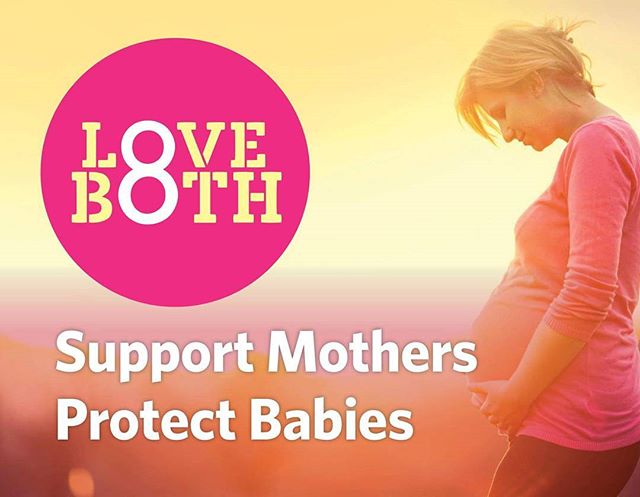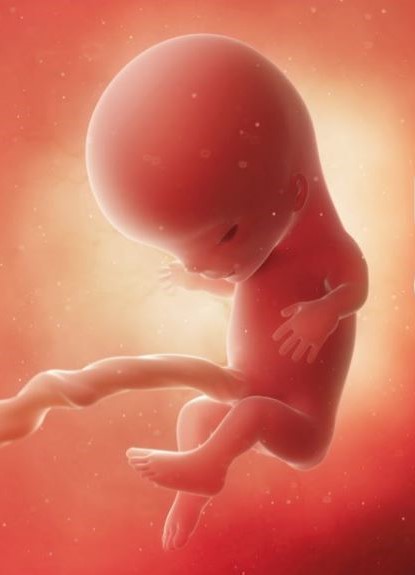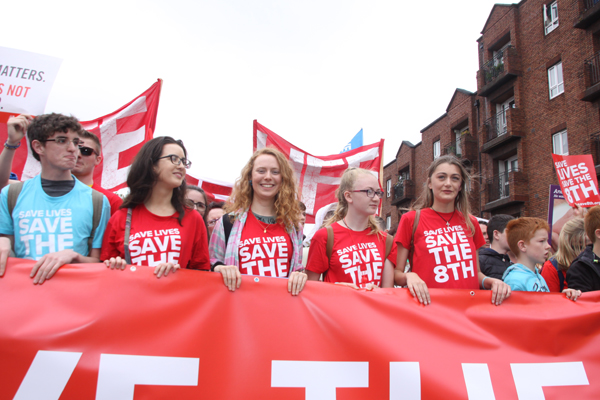


The Save the 8th campaign on Thursday morning unveiled a position paper outlining how the Government’s abortion bill introduces abortion for healthy babies at six months. The general scheme of the Govt’s proposed legislation states that it shall be lawful to carry out a termination of a pregnancy where there is risk of serious harm to the health of the pregnant woman. John McGuirk, communications director for the Save the 8th campaign, said 97 per cent of all abortions in the UK happen on mental health grounds. Niamh Uí Bhriain, chairwoman of Save the 8th, said “We’re going to make sure voters know that this is abortion on mental health grounds, the same model as the UK model of abortion right up to six months of a baby’s life. This will result in healthy babies being aborted right up to six months, that’s a very frightening prospect and a huge cultural change in this country”.

A new study shows that Ireland’s personal tax burden for one-income families not only rose in 2017, it recorded the largest increase anywhere, at 2.9 percentage points. In contrast, there were large decreases in Poland (5.1 percentage points) and Luxembourg (one percentage point).The survey also reveals the chasm that has opened up between families with children and single earners without.
Ireland is said to have a “fiscal preference” for families and this is highlighted by the report, published on Thursday. While it is on the rise, one-income families on the average wage and with children give up just 1.2 per cent of their income on tax. That is one of the lowest tax burdens in the OECD. The 1.2 per cent net personal average tax rate for such families with children contrasts with a rate of 19.4 per cent for a single worker on the same wage. This is the third lowest of the 35 countries surveyed, alongside Canada, and behind only the Czech Republic (0.7 per cent) and Poland. The net personal tax rate is after taking into account transfers like Child Benefit.

The Save the 8th campaign has called on Dr Peter Boylan to resign as chairman of the Institute of Obstetricians and Gynaecologists following comments he made in an interview with Hot Press magazine. In the interview, Dr Boylan is quoted as saying: “Savita Halappanavar died as a result of the Eighth Amendment. Michelle Harte, who was looked after by Professor Louise Kenny, died as a consequence of the Eighth Amendment. Sheila Hodgers died as a consequence of the Eighth Amendment. We have the Miss P Case.” John McGuirk, communications director for the Save the 8th campaign, said the claim that four women had died due to the amendment was false and that more than 3,000 people had signed a petition calling for Dr Boylan to resign over the matter as of Thursday morning.

The age at which children can consent to legal contracts with social media companies like Facebook without the consent of their parents looks set to be raised by three years to 16. Government Ministers had agreed to set the ‘digital age of consent’ at 13 but now face an embarrassing Dáil defeat unless they backtrack. Fianna Fáil, Sinn Féin and the Labour Party have all indicated they now favour raising the age limit to 16.
It comes as the messaging service WhatsApp announced that it has raised the minimum age for users in Europe to 16. The instant messaging app, which is owned by Facebook, said the move was in response to the EU’s General Data Protection Regulations (GDPR). GDPR bans the processing of personal information of children under 16 unless parents provide consent. However, individual countries can lower this to 13. Countries like France and germany decided to set it at the maximum age, 16, but the government and children’s rights organisations were intent on it being set at the minimum possible age in Ireland.
Justice Minister Charlie Flanagan has received Cabinet approval to set the age at 13. This position is backed by groups including the Irish Society for the Prevention of Cruelty to Children and the Children’s Rights Alliance and the Special Rapporteur on Child Protection, Geoffrey Shannon.
However, the move by opposition parties toward the higher age limit could inflict an embarrassing Dáil defeat on the Government.

The LoveBoth campaign has issued a challenge to Minister for Health, Simon Harris, to publicly defend his proposed draft legislation in a debate with one of their own representatives. At a press conference yesterday, a spokesperson said “Minister Simon Harris has challenged the pro-life movement on how we can justify the status quo and keeping the Eighth Amendment. In return, we challenge Minister Harris to a debate on his proposal and the issue in general, including alternatives to abortion”. They added: “Minister Harris wants to remove the right to life from the Constitution. So our challenge to Minister Harris is: Come out and debate your abortion proposal with a LoveBoth spokesperson. There is nothing radical or progressive about taking away the right to life.”
Love Both claimed the proposed draft legislation will lead to one of the most extreme ‘abortion on demand’ regimes in the world. Campaign spokeswoman Sinéad Slattery told a news conference on Wednesday: “The referendum is about one thing and one thing only – introducing abortion on demand.”
The group were sharply critical of the political process for spending the last six years focussed exclusively on providing abortion, and nothing on providing alternatives to abortion.

In echoes of the 1916 Proclamation of the Irish Republic, a new left-wing pro-life group launched on Tuesday at the GPO calling for all the children of the Republic to be cherished equally. Addressed by Sinn Féin TD Peadar Tóibín and Dr Judy Ceannt, granddaughter of 1916 rebel, Commandant Éamonn Ceannt, the group appeals to Republicans, Trade Unionists, & activists of the left. Deputy Tóibín told supporters that while the life of the unborn deserves the protection of the law, it is also the case that “the life of the mother in all cases must be protected”.
“I have asked doctor after doctor and obstetrician after obstetrician and every time I ask them are they aware of any woman who has lost their life due to the Eighth Amendment, they have all said no,” he said.
“With the Eighth Amendment, Ireland has one of the best maternal mortality rates in the world and I would not support any law that did not guarantee the right to life of the mother. The unborn child is an individual living human being. She is the weakest and vulnerable of all human life. She has no voice. All she has currently is the Eighth Amendment and your vote.”

The Royal College of Obstetricians and Gynaecologists, which is based in the UK but trains and accredits many Irish obstetricians, has expressed its political support for the repeal of the Eighth Amendment. In a statement, the college also said it was ready to train Irish doctors to execute abortions in the State if the referendum was passed on May 25th. The College also supports further liberalisation of Britain’s already very permissive abortion law.
“The presence of the Eighth Amendment in the Irish Constitution means that thousands of women travel from Ireland to the UK every year to access abortion services because this care is otherwise unavailable to them. The high cost and stress of travelling to another country for an abortion, combined with the increasing availability of abortion medication online, has seen a growing number of women from Ireland – potentially up to 1,000 year – attempting to end pregnancies this way, without any medical supervision.”

Offaly TD Carol Nolan said the Midlands is “overwhelmingly” opposed to next month’s referendum during a pro-life event where she did not rule out leaving Sinn Féin unless the party allows a conscience vote on future abortion legislation.
Speaking at the launch of “Cherish All The Children” at Dublin’s GPO, Ms Nolan said in her opinion there is a groundswell of pro-life support, saying that after canvassing in Offaly, north Tipperary, and Laois she believes there is a 70-30 split in favour of retaining the Eighth Amendment in the Midlands alone. “I’ve been in a lot of counties and it has been overwhelmingly pro-life,” said Ms Nolan. “People are shocked this country is facing such a proposal. From the doors I’ve knocked, I would put it at 70:30 against”.
Ms Nolan was suspended by Sinn Féin earlier this year for having voted against the holding of a referendum to repeal the Eighth Amendment. “It is what it is. It’s a suspension, there was a clash between my conscience and their policy and that’s how it ended up,” Ms Nolan said. “I’m dealing with it in an honourable manner and I’m continuing to work hard in my constituency for the people who elected me.”
While she hopes to return to the party ranks in the coming months, she did not rule out leaving Sinn Féin unless the party allows a conscience vote on future abortion legislation: “What I’m hoping for at this time, along with many other colleagues, is that we will have the free vote,” she said.